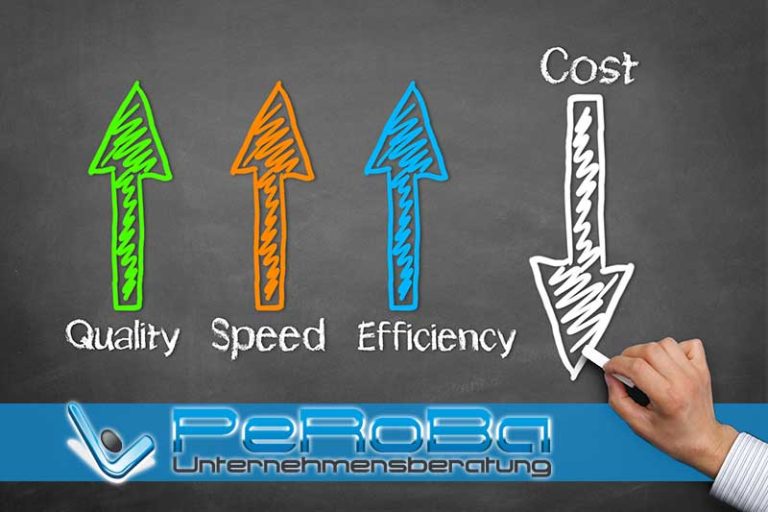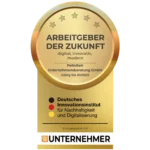Highest requirements on quality management in the automotive area
Large automotive manufacturers expect nowadays the highest levels of quality management from all their suppliers. Without that, it is hardly possible anymore to obtain lucrative orders or to establish long-term partnerships. That’s why continual further training and certification according to the most up-to-date standards is nearly inevitable in the automotive department.
Assessment of quality management in the automotive area
It’s also fast and easily visible to people who don’t work in the automotive sector that quality management requirements are especially high there. Complex processes, long supply chains and the many sources of risks that occur during car manufacturing from the first drawing up to the last screw constitute new challenges for organization and planning time and again. During these processes, automotive manufacturers need to be able to rely not just on themselves but also to an exceptional degree on the reliability and quality of their suppliers. Just in time production, which is omnipresent nowadays, will cause massive problems for final manufacturing as soon as it comes to even the smallest problems and supply bottlenecks. Therefore, it is all the more important to optimize and control the entire process chain. As a rule, that also means that automotive suppliers need to adjust their own processes to the specifications of the clients wherever necessary. Flexible processes and suitable quality management tools help to master those challenges.
Quality management software as an important component in the automotive sector
As there are very long and complex processes involved in quality management in the automotive sector, the utilization of suitable quality management software is especially relevant. It is the most efficient means to document and control appropriately critical interfaces, e.g., among companies, departments or responsibilities and competences.
Adequate quality management software helps actively to minimize efforts and costs and to maintain the best possible quality management level nonetheless. It purposefully avoids redundant processes and insures through comprehensive risk management that problems with sensitive interfaces are minimized or prevented. Therefore, optimized quality management in the automotive department through process-oriented QM software is one of the most efficient means for actively promoting competitiveness and customer satisfaction while optimizing profitability at the same time.
What are the main benefits of quality management for the automotive sector?
- Improve your products. Pro-active quality management solutions help you to identify problems early and easily.
- Better customer relationships. Your customers are happy about quality products. The marketing potential of satisfied customers is priceless.
- Improved bottom line. Quality management assures less production downtime or recalls.
- Reduce time-to-market. A professional quality management system allows you to launch new innovations and products faster than your competitors.
- Ensure compliance. In a globalized world industry standards are indispensable.
Quality management in the automotive area with PeRoBa GmbH in Munich

PeRoBa Management Consultancy in Munich (Germany) supports you worldwide in a comprehensive manner with the introduction and optimization of quality management in the automotive area. We will be glad to help you with the analysis and implementation of a suitable quality management system (IATF 16949, VDA 6.3,…) irrespectively of whether you want to obtain your first certification, a new certification or a conversion of existing certificates. We analyze and optimize your processes, your organization and your infrastructure. We perform internal audits, train employees in practically dealing with quality management and help with planning and obtaining important certifications.
Quality management in the automotive industry – FAQ
Aside from the classic ISO 9001, there are quite a few specialized and relevant standards in the automotive industry.
Based on ISO 9001, IATF 16949 defines these special requirements on manufacturers in the automotive department, focusing, above all, on the North American and European areas. On top of that, the German Automotive Industry Association, the Verband der Automobilindustrie (VDA) defines standards for performing process audits (VDA 6.3) and other relevant standards (e.g., VDA 6.4 for manufacturers of production plants in the automotive branch).
As most important standard for automotive construction on an international level, IATF 16949 is oriented toward the specific needs and requirements of the automotive branch. Therefore, it concentrates mainly on product safety, change management, risk management (emergency management) as well as on the embedded systems, which are especially relevant here. Another focus is on continually improving quality management.
Mechanical engineering – and especially, the automotive branch – have always been the driving forces in the quality management department. The possibilities but also the necessities of streamlined processes and cost reductions were acknowledged and implemented here early on. So far, this has led to continuous quality management throughout the development and manufacturing chain. Practically, suppliers don’t stand a chance of becoming parts of this value-added chain without certified quality management any more nowadays.


How may we help you?
If you have any questions dont hesitate contacting us!
You can use our contact form to write us a message, call us or make a free online appointment.



